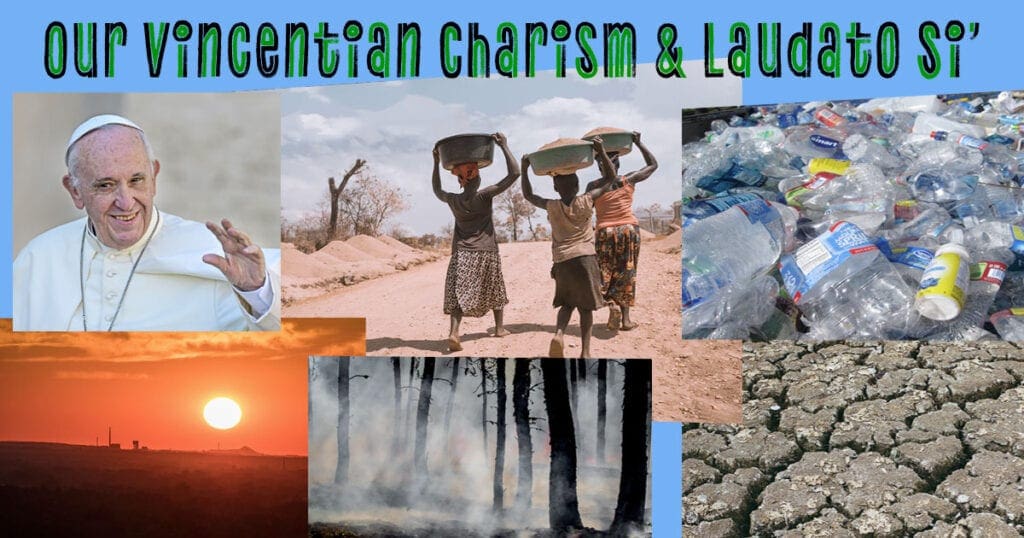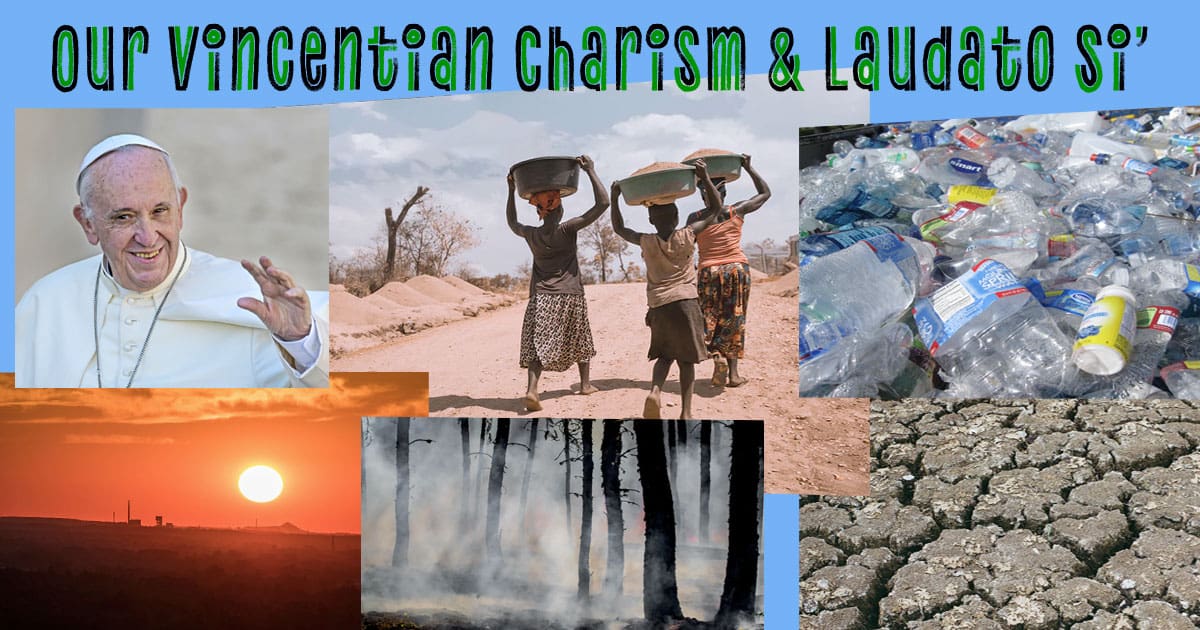Reflections on Laudato Si´
Collaboration was key to the ministry of St. Vincent de Paul from its earliest beginnings. Recognizing that charity needed to be organized to be effective, he invited others – men, women, aristocrats, peasants, rich and poor – to join him in his mission.
This same collaborative spirit is evident in Pope Francis’ writing and publication of his encyclical, Laudato si´: on Care for our Common Home. Developed in dialogue with episcopal conferences and other colleagues from around the world, it is a call for collaboration among all people, individuals as well as institutions, organizations and nations.

Convinced that “the Church does not presume to settle scientific questions or to replace politics”, Pope Francis sees dialogue as a means of encouraging “an honest and open debate so that particular interests and ideologies will not prejudice the common good.” (188) A man of science and a pastor, he consistently maintains that “realities are more important than ideas”. (110, 201) Here, forthright and honest dialogue which brings all parties into the conversation is key to exploring reality and the limits it imposes. (135) Further, reality is incarnational and everything is closely interrelated. Thus, “a true ecological approach always becomes a social approach; it must integrate questions of justice in debates on the environment, so as to hear both the cry of the earth and the cry of the poor.” (49) Given the scale of the current crisis, the pope asserts, “It is essential to seek comprehensive solutions which consider the interactions within natural systems themselves and with social systems. … Strategies for a solution demand an integrated approach to combatting poverty, restoring dignity to the excluded, and at the same time protecting nature.” (139) Because care for the environment cannot be separated from the life and survival of human society, he proposes an integral ecology “capable of taking into account every aspect of the global crisis.” (137)
Committed to reality over ideas, Pope Francis offers a course of action that builds relationships through dialogue and collaboration. Relationships are, in fact, central to his understanding of the concept of home which clearly reflects his experience among the poor in Argentina. “The feeling of asphyxiation brought on by densely populated residential areas is countered if close warm personal relationships develop, if communities are created, if the limitations of the environment are compensated for in the interior of each person who feels held within a network of solidarity and belonging.” (148) In his commitment to reality, moreover, Francis is very practical in identifying what is needed to for a viable family home: clean water, employment opportunities, adequate living space and transportation systems. When considering our global home, he is no less practical about the kinds of changes that will be needed: respect for the integrity of every creature, new models of economy and progress, moderation in the use of technology and consumer goods. Clearly, these changes will have an impact on the wealthy nations in which many of us live. Laudato si´ is a call for ecological conversion. How will we, Vincentians, respond?
The Vincentian Charism and Laudato Si’ is our effort to share various ways that Vincentians find their charism connects with Laudato Si’. We encourage your comments on these posts and welcome anyone interested in submitting an article to email Jim Paddon at jpssvp@hotmail.ca.







Thanks for this helpful reflection!
Yes, very helpful to make the connection between relationships and collaboration as critical aspects of our Vincentian Charism – gifts that all our founders have modeled and given to us as a legacy we are entrusted to develop and share!